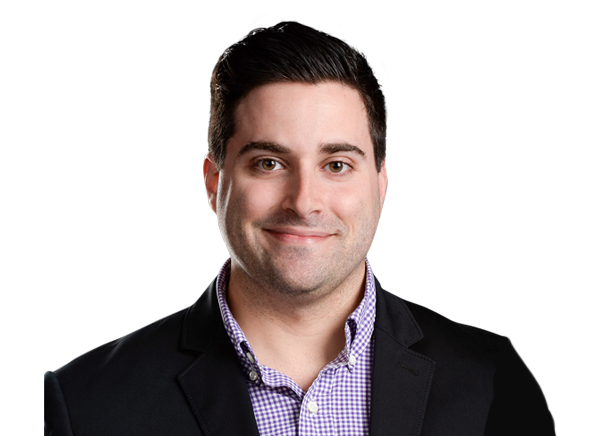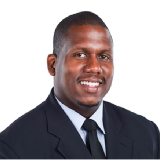What the latest NCAA allegations mean for Bill Self, Kansas
Kansas and Bill Self have been hit with a notice of allegations by the NCAA. Here are the implications….

Bill Self and Kansas find themselves under the NCAA microscope. How bad could this get for the Jayhawks?
We waited nearly two years for the NCAA to take steps forward in its investigation into a number of schools stemming from the FBI investigation into corruption and fraud in college basketball. The first major shoe dropped: Kansas received a notice of allegations citing a lack of institutional control, highlighted by coach Bill Self being charged with head coach responsibility violations. Kansas now has 90 days to respond, and Self and the Jayhawks said they will fight the allegations.
What does this all mean and what’s next, for Kansas and the other schools involved in the FBI investigation? Let’s break it down.
What does this mean for Kansas’ 2019-20 season? Are any current players at risk?
Bill Self has one of the best teams in the country heading into the season. But aside from the potential off-court distractions, this might not impact this season’s Jayhawks all that much. The school has 90 days to respond to the notice of allegations, and if it’s going to fight the charges — which it said it planned to do in a statement Monday night — that brings us into late December. The NCAA then has 60 days to respond, and then there’s another 45 days to schedule a hearing in front of the committee on infractions. By that point, we’re already into the spring.
On the player side, there don’t seem to be urgent ramifications. The only player on the current roster with a connection to the investigations is Silvio De Sousa, whose guardian received $2,500 from former Adidas consultant T.J. Gassnola and allegedly agreed to a deal for another $20,000, according to Gassnola’s court testimony. De Sousa sat out all of last season in NCAA limbo — before the NCAA ruled in February that he was ineligible for the rest of the season and all of the upcoming season. However, De Sousa won his appeal in May and is eligible to play this season.
Billy Preston was also mentioned, as testimony and evidence last fall alleged that Preston’s mother, Nicole Player, received $90,000 from Gassnola for her son to attend Kansas. But after sitting out the first half of the 2017-18 season, Preston signed a professional contract in Bosnia and never suited up for the Jayhawks.
It remains to be seen if any pending off-court steps and/or other punishments will impact Kansas’ program, on or off the court, but nothing appears imminent. — Jeff Borzello
What does this mean for Bill Self and his staff?
Although there is unlikely to be a major short-term impact for Self, it’s fair to wonder whether implicated assistant coach Kurtis Townsend has coached his final game at the school — assistants are often treated as expendable by panicked universities in these situations.
As far as the long-term impact — even while acknowledging that this investigation is without an exact precedent in college basketball — it might be instructive to revisit Kevin Ollie’s situation at UConn. Ollie received a three-year “show cause” penalty (which essentially barred him from the college game, and is similar to the penalty the NCAA says it “could seek” of Self) after he was accused of misleading the NCAA about the specifics of off-campus workouts with a trainer, as well as a FaceTime video between a recruit and former NBA and UConn star Ray Allen. Ollie was fired by the school for cause in the midst of the investigation. Although Kansas figures to support the winning Self more than UConn supported the struggling Ollie, if the penalties are that severe, Self might have to reconsider his future.
Having said that, Louisville, North Carolina and Syracuse have also been subjected to serious NCAA infractions cases in recent years, and only Louisville fired its coach. All three programs continue to thrive in college basketball as significant brands within the sport.
Self has vowed to fight the charges, though it’s worth noting that two years ago he placed a timetable on his own longevity as a coach in an interview with ESPN.
“I’ve said all along that if I go to my late 50s, that’d be good for me,” Self said then. He turns 57 in December. He’ll be 59 in the final year of his current contract. — Myron Medcalf
What does this mean for Sean Miller, Bruce Pearl, Andy Enfield and others who had assistants implicated in the FBI scandal?
It suggests the NCAA might pursue similar routes in those cases, and it is not relying solely on the FBI to chase alleged wrongdoers. But “lack of coach control” is a broad standard.
Per NCAA bylaw 11.1.1.1: Division I head coaches are “presumed to be responsible for the actions of all staff members who report, directly or indirectly, to the head coach. The head coach will be held accountable for violations in the program unless he or she can rebut the presumption of responsibility.”
Any presumption a coach should have known about the seedy details of a program anchored by young men in their late teens and early 20s is complicated — just ask the FBI. Although Miller, Pearl and Enfield have all been connected to the FBI investigation via their programs, none of them have been charged. What makes anyone think the NCAA could do better?
Here’s the fine print, though: The NCAA might choose to impose severe penalties on the coaches involved and possibly force the hand of their respective schools. What if the NCAA goes beyond suspensions and issues a show-cause penalty on every head coach with a program attached to the FBI probe?
Remember, Ollie is essentially banned from coaching at this level for three years because of allegations that don’t even involve pay-for-play. The Commission on College Basketball initially sought lifetime bans on coaches found guilty of corruption. The NCAA can use the info uncovered in the FBI trials to initiate penalties against these coaches, but it’s unclear how it would defend those decisions in the appeals process. This is a major test for the new NCAA, and how it responds to Kansas could represent the blueprint for future penalties in the wake of the FBI’s investigation. — Medcalf
Does Kansas’ notice of allegations provide any insight as to how the NCAA is treating or using court testimony?
Earlier this month, an NCAA request to obtain redacted and unreleased material from the various criminal cases pertaining to the FBI investigation was denied by a U.S. District Court judge. The NCAA had requested access to 24 exhibits and the unredacted sentencing memorandum for James Gatto, a former Adidas executive convicted last October. In the opinion, Judge Lewis A. Kaplan acknowledged the “materials related to potential rules violations,” but “the information in these documents consist of hearsay, speculation and rumors.”
As a result, the NCAA has access to what was said or shown in court during the two trials: the testimony of witnesses and the exhibits submitted into evidence.
We don’t know whom the NCAA independently interviewed or which information it independently confirmed, but it seems the NCAA is leaning heavily on witness testimony and wiretap transcripts. Gassnola spoke extensively about his and Adidas’ dealings with Kansas, specifically De Sousa, while the Kurtis Townsend conversation referenced by the NCAA was caught on an FBI wiretap of Adidas consultant Merl Code’s phone.
If the NCAA is going to use all the testimony and transcripts from both trials — some of which it might not be able to independently investigate or corroborate — this could be the tip of the iceberg for schools in NCAA trouble. — Borzello
The NCAA has effectively identified Adidas as a booster for Kansas — could that designation have implications for other Adidas schools? Could there be implications for other apparel companies that have business partnerships with schools?
Identifying an apparel company as a “representative of an institution’s athletic interests,” the definition of a booster per NCAA bylaws, is a tacit argument on the part of the NCAA that a shoe company is acting as a middle man between top players and the school that wears the brand. The argument fits alongside the Commission on College Basketball’s efforts to eliminate the influence major apparel and shoe brands have over the grassroots circuit — Adidas, Nike and Under Armour each control major AAU leagues which, when taken together, form the backbone of college basketball’s player feeder system. The argument that shoe companies are boosters also sounds like a massive challenge for the NCAA to both define and enforce.
Kansas is one of 12 Power 5 schools that have contracts with Adidas (the others: Arizona State, Georgia Tech, Indiana, Louisville, Miami, Mississippi State, Nebraska, North Carolina State, Rutgers, Texas A&M and Washington). If a prospect from the Adidas circuit signs with an Adidas school, is the NCAA going to come after the school? Is it going to claim Adidas, the booster, has been providing “material benefit” to the prospect who has been wearing the Adidas brand on the grassroots circuit?
Can the shoe company-run basketball circuits even exist, if that’s the definition? And what of the existing contracts, most of them long-term deals, that schools have with apparel companies? There would be quite a bit to sort out here, and it’s going to cost the NCAA (and its member institutions) a lot of money to go down this road. — Medcalf






